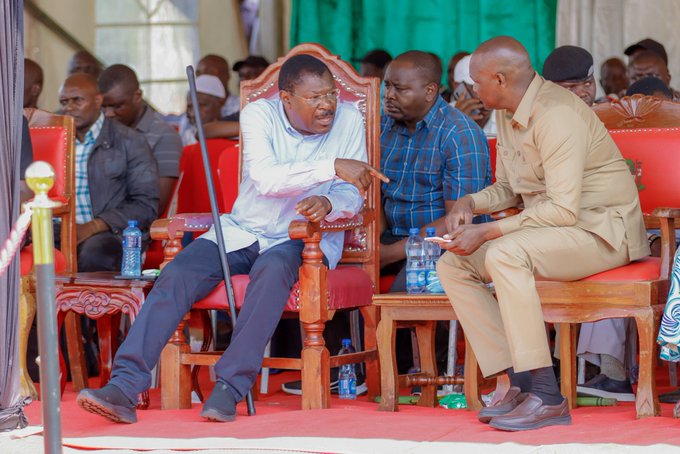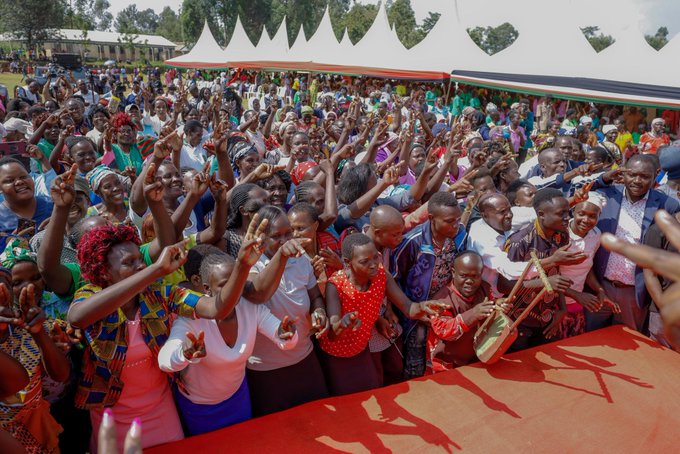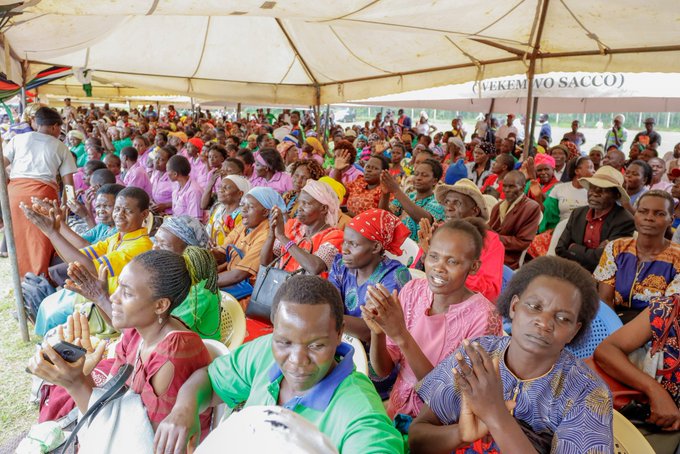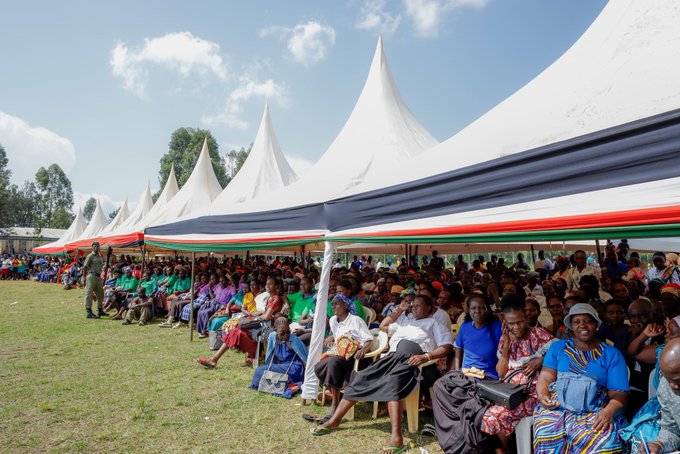NAIROBI, Kenya – A fresh political showdown is brewing ahead of the planned June 25 memorial protests, with Kenya Kwanza leaders now demanding the arrest of key opposition figures accused of inciting unrest and destabilising the country.
Speaking over the weekend in Navakholo, Kakamega County, senior figures from the ruling coalition warned that the upcoming demonstrations—branded Gen Z Day—risk plunging the country into chaos. They accused the opposition of weaponising youth-led activism for political gain.
“This is no longer about freedom of expression. This is a deliberate attempt to destabilise the nation and derail our development agenda,” said National Assembly Majority Leader Kimani Ichung’wah.
He was joined by National Assembly Speaker Moses Wetang’ula, Senate Majority Leader Aaron Cheruiyot, and President Ruto’s political advisor Farouk Kibet, who spoke at a women empowerment forum in the county.
MPs Sylvanus Osoro, Beatrice Elachi, Bernard Shinali, and Emmanuel Wangwe also echoed the call for action.
The leaders specifically targeted opposition figures, including former Deputy President Rigathi Gachagua and Wiper Party boss Kalonzo Musyoka, accusing them of inciting Gen Z youth to take to the streets in defiance of the law.
Alive to the inequalities that women face across various sectors, including education, healthcare, politics and even employment, and with my promise to support any leader in their women empowerment programs, accompanied by a host of legislators from across the country and
Opposition Pushes Back, Says June 25 Will Be Peaceful
The opposition, however, insists that the June 25 activities are meant to be peaceful, symbolic, and focused solely on remembering those who were killed during the 2024 anti-Finance Bill protests.
Gachagua and Kalonzo attended a prayer service at All Saints’ Cathedral on Saturday, alongside families of the victims.
The two leaders urged Kenyans to treat Wednesday as a symbolic public holiday and light candles in honour of the youth who lost their lives exactly one year ago.
“This is not about politics. This is about memory, dignity, and justice,” Kalonzo said.
Some civil society groups and online Gen Z organisers have also urged the public to avoid the streets, warning that political leaders on both sides could hijack the day for personal gain.
“We ask that you do not hijack this moment. This day belongs to the families who buried their children, not political opportunists,” said Njanja Maina, a vocal human rights advocate.“We’ve seen how paid thugs are used to infiltrate peaceful protests. We will not allow them to exploit our grief.”
Police Vow to Provide Security, Warn Against Violence
Nairobi police commander George Seda confirmed that the authorities had received formal notification about the protests and pledged that officers would be deployed to ensure safety.
“Let’s restrict ourselves to what we call peaceful demonstrations,” Seda said. “Let’s not have protests that interfere with the rights of others.”
Still, tensions remain high amid fears of renewed clashes between demonstrators and security forces, particularly in Nairobi and other urban centres.
Businesses are bracing for possible disruptions, while human rights groups have raised alarms over potential police overreach.
The June 25 protests—whether symbolic or mass—are shaping up to be a critical test of Kenya’s democratic space, especially for a youthful generation that has found its voice in digital activism and peaceful resistance.
The anniversary also reopens painful wounds for families who lost loved ones in last year’s demonstrations, and it is likely to reenergise public debate around police brutality, civic freedom, and political accountability.







